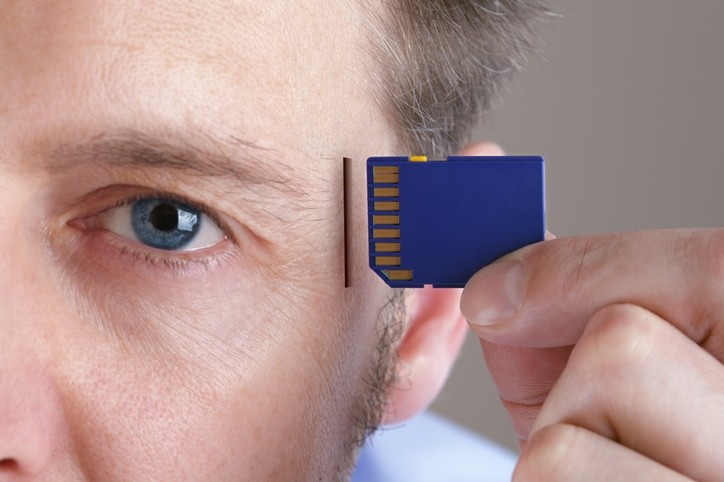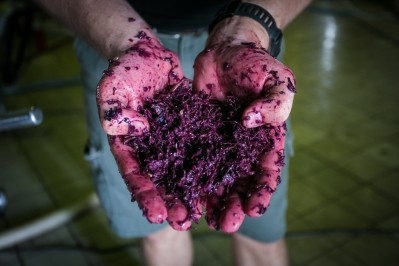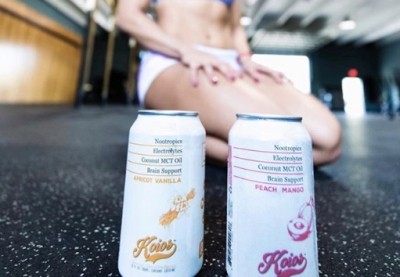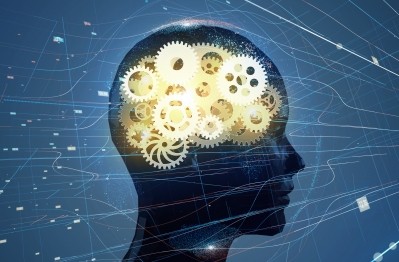Polyphenols from grape and blueberry show promise as effective nootropic ingredients

When cognitive health is mentioned, the geriatric population may come to mind. But the supplement industry is marketing toward college students, gamers and other younger generations who are looking for an energy boost, better mental focus, memory enhancement and blue light exposure protection.
Nootropics give the brain and market a boost
The global nootropics market size is expected to reach $4.94 billion by 2025, according to a new report by Grand View Research. It is projected to register a CAGR of 12.5% during the forecast period. Rising healthcare costs and mental health awareness is anticipated to fuel the demand for nootropics, also known as smart drugs. Other factors which influenced growth is the elderly population battling mild Alzheimer's disease as well as those looking to gain a competitive edge in academic performance.
The memory enhancement application segment led the nootropics market in 2018 and it is expected to remain ahead over the forecast period. As the world’s elderly population grows to an estimated 2 billion by 2050, memory loss remains a major health concern.
Common nootropic ingredients include botanicals like Panax ginseng or Ginkgo biloba, as well as adaptogens like Rhodiola rosea. But recent research shows that polyphenols from grapes and blueberries combined may help boost declining memory among some older adults.
Researchers in France and Canada piggybacked off their own previous work on mice with other preclinical and clinical studies showing that blueberries and grapes or their extracts may offer benefits for age-related cognitive decline. Their previous animal research also showed a synergistic effect, where grape extract enhanced the absorption of polyphenols in the blueberry extract.
Method
To determine whether an extract of both fruits may affect human cognition, researchers studied 215 men and women aged 60 to 70 years in a 6-month clinical trial. Participants randomly received either a placebo or 600 mg per day of a polyphenol-rich grape and blueberry extract that contained 258 mg of flavonoids. The fruity extract, is marketed under the brand name Memophenol, a trademark of Activ'Inside. Located in Bordeaux, France, the company is also a grape extract specialist.
At the beginning of the trial, researchers administered several baseline cognitive ability tests, including visuospatial skills and episodic memory tests in which participants watched patterned boxes open on a touchscreen computer. When the patterns then appeared in the middle of the screen, participants had to match them to the appropriate box. Additional testing assessed episodic verbal memory and working memory.
Findings
All participants improved on the touchscreen computer test after 6 months. However, when researchers divided the participants into 4 groups according to their baseline test performance, they found significant improvement among extract recipients with the greatest cognitive decline. In this group, cognitive age estimated from baseline test results improved by nearly 14 years, compared with about 5.5 years in the placebo group. Overall, the extract group also improved in verbal recall.
“[O]ur study confirms the need to define a recommended dietary allowance for flavonoids and revise recommendations for foods rich in these bioactives,” the authors concluded.
This isn’t (just) your grandmother’s supplement
Benoit Lemaire, CEO of Activ'Inside, told NutraIngredients-USA that their grape and blueberry extract Memophenol is also used in studies of younger populations.
“This supplement is not only for seniors. Polyphenol-rich Extract from Grape and Blueberry (PEGB) marketed under the brand Memophenol has been subject of a 2nd clinical study on students.”
Indeed, the randomized, double-blind, placebo controlled and crossover clinical study (study title pending) is forthcoming. Lemaire said this clinical work included 30 students ages 18-25 years old under exam conditions, who were supplemented with 600mg Memophenol in one shot. Significant results shown a 36% higher cognitive performance on Memophenol group compared to placebo after 90 minutes.
Memophenol comes in capsules, tablets, sachets and shots.
Source:
The Journals of Gerontology: Series A
Volume 74, Issue 7, July 2019, doi.org/10.1093/gerona/gly166
“Polyphenols From Grape and Blueberry Improve Episodic Memory in Healthy Elderly with Lower Level of Memory Performance: A Bicentric Double-Blind, Randomized, Placebo-Controlled Clinical Study”
Authors: J. Bensalem, et al
















